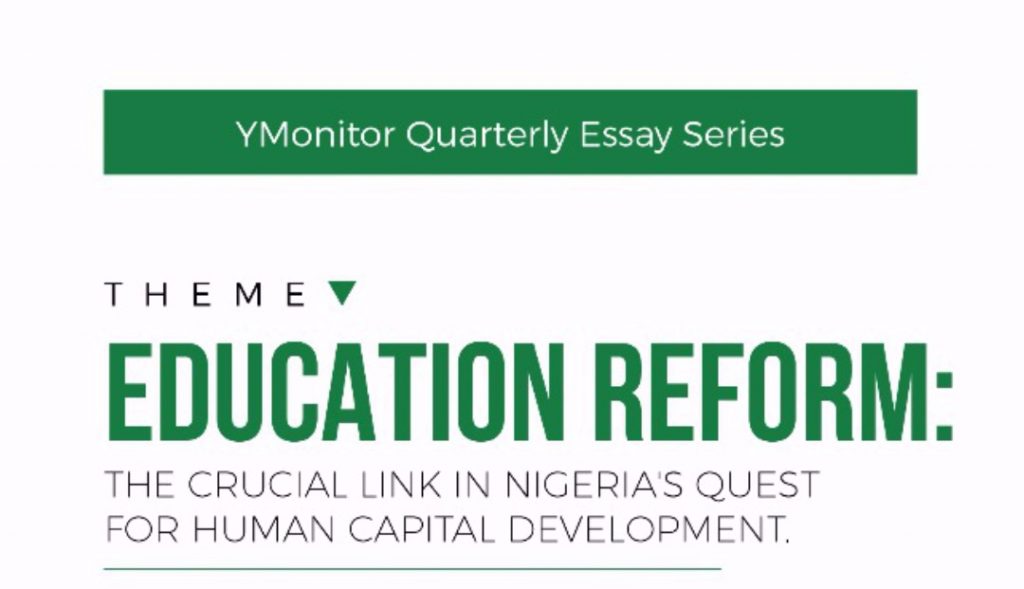by Atiku Nafisa Emmanuella
Some months ago, I was on an advocacy trip to a local school. As I waited for the students to finish listening to their teacher during their co-curricular activities, the well-intentioned teacher made a statement saying, “Barack Obama’s sins are the reason for climate change in America.” I was dumbfounded and amused. This wrong teaching alone was a pointer to the undeniable fact that our educational sector lies in shambles.
A careful analysis of the age distribution that exists within our mass population would reveal a huge youth bracket. In Nigeria’s total population which is a total of 193,908,493 million people; the youth represent a little higher than 50% of the total population. A number of 77,599,973 are young people under 15 years old.
In 2050, Nigeria is set to be the third most populous country in the world. This information alone indicates that that the tool of education ought to be given utmost priority in the operations of governance. We are now facing an unprecedented population boom, which necessitates the need to develop our educational sector and make it accessible to all. An educated youth population is a strength no nation should ignore.
A lack of political will has proven an obstacle in developing this sector. We have a situation whereby our political office holders pay lip service and in action do otherwise. Glaring evidence of this assertion can be safely deciphered from the proposed 2018 National Budget.
Taking an in depth look at the proposed 2018 National Budget, Education is given a paltry sum of 61.73 billion naira compared with Defense which has a budget of 145 billion, Special Intervention Programs which has a budget of 150 billion and Transportation which has a budget of 263.1 billion. This act in itself is a grave mistake as the educational sector is faced with a myriad of problems ranging from outdated and impractical curriculums, strikes in the higher institutions due to poor payments of the teaching staff, infrastructural deficit, inaccessibility due to the costs of education, incompetent teaching staff and low salaries of the teaching staff. Only 7% of the national budget was awarded to education as against the recommended standard of 26% by UNESCO.
No Nigerian University is ranked among the top 800 in the world or among the top 100 in Africa. Due to a rising youth population, we have rising education demands of which our national budget cannot sustain. When Malala Yousafzai, an advocate for equality in education paid a visit to Nigeria, she famously called for a state of emergency in the educational sector.
No nation can truly prosper by pushing the demands of education to the background. A country’s greatest resource is not technology, solid minerals or oil but its people. It is the people through the tool of education; who come up with innovations and solutions to the myriad of issues, which plague our evolving society. Lack of education also hampers the ability of young people to actively take part in their civic duties.Part of the reason why our democratic system is so unstable in its character is because of a lack of quality education among our youth.The sustainable development of a nation depends on the development of its people.
Our curriculum is not properly constructed to place our institutions or our students on the global stage to compete. The reason why we seem to have a brain drain or shall I say a lack of innovative solutions among our youth is due to the lack of ingenuity of our curriculum. Our youth are still being taughtage-oldtheories instead of modern technology. They are being taught to solve problems of the past; instead creating innovative solutions for the future. This is the reason why we have unemployable graduates.
Education should be free social amenity because; it is the tool through which one creates and constructs his/her future. It is indispensable in the personal development of a young person. However, the sad reality is that Nigeria has 13.2 million children out of school. Education must be accessible and technology can help in making this possible.Estonia after it received its independence in 1991 had as its only independent link to the rest of the world a Finnish mobile phone hidden in the Prime Minister’s garden. Twenty years later, its citizens have created the code behind Skype. How did they achieve this? By marrying education with technology. If we must create a culture of problem solving, solutions and wealth creation then we must do the same.
The recent upheaval in the Kaduna educational sector is a pointer to the rot that exists in the system and how the government has failed its people in providing the most important of all social amenities. It points to a haunting cycle, the teachers who were not taught well are now teaching another generation with poorly honed skills thereby preserving the problem. The sacked teachers who were of course poorly educated are going into a system to become a burden on the economic system of that state.
Paying lip service to preserving our educational sector is not what we need, but well-informed decisive and impactful action from all stakeholders concerned, especially the government to create a drastic turn around in our educational sector.
